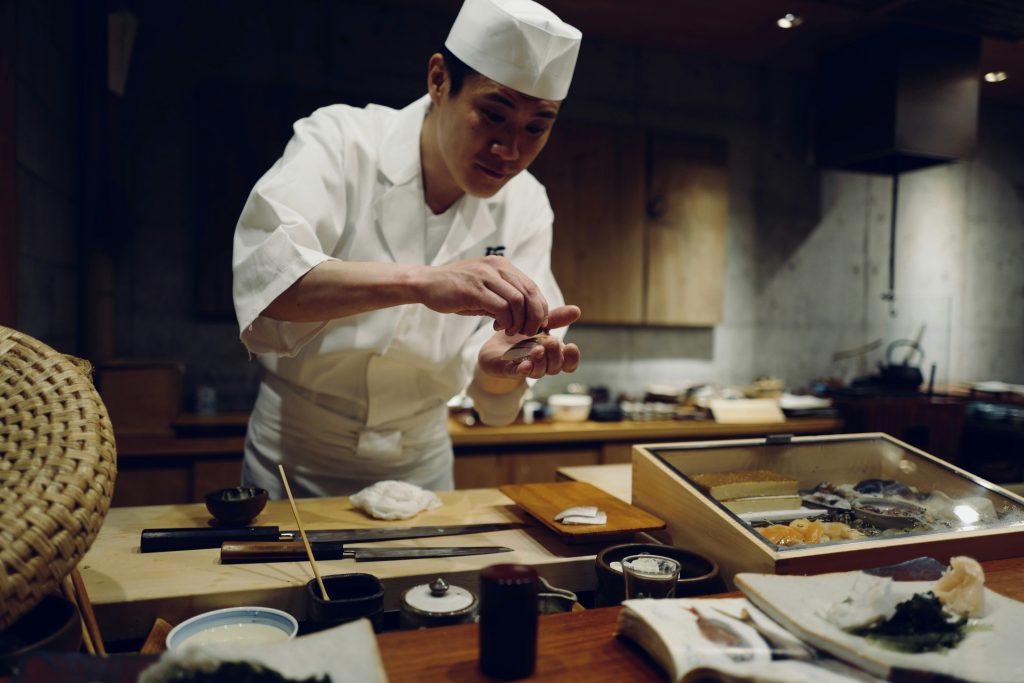
Angry chefs, toxic kitchens, difficult customers, and run-off-your-feet shifts — it’s no secret that the hospitality industry often gets a bad rap, and it can be tricky to change a culture that’s been ingrained in a business for a long period of time.
Recently, workplace culture in restaurants has been put under the microscope, and many venues are taking proactive steps to create a more positive working environment for their staff.
In this blog, we’ll share some practical tips on how to build a positive snd inclusive culture in your kitchen.
First, let’s understand what workplace culture really means. So, what is it?

Workplace culture is the overall environment in your business that affects how employees feel and interact with each other. It can be fun, supportive, stressful, intimidating, or inclusive, depending on how you define it.
Your workplace culture is formed through a mix of leadership styles, values, behaviours, attitudes, traditions and beliefs. All these factors come together to influence how your team works and gets along.
Creating a positive workplace culture is key to keeping employees happy and engaged, which in turn boosts the success of your business. On the other hand, a negative culture can lead to high staff turnover, dissatisfaction, and poor performance.
6 tips for a great workplace culture
1. Respect everyone’s time
A positive workplace starts with respecting your staff’s time and making them feel valued. When employees know their time is respected, they’re more likely to enjoy their work and be dedicated. Ensure that each team member has two days off a week and enough break time. Even though hospitality work often means long hours, showing that you value their time and hard work can boost satisfaction and keep your team around longer.
2. Be considerate and make work easy
Hospitality can be fast-paced and stressful, leading to high staff turnover. To keep your best people, make their job as easy as possible. Provide meals and drinks while they’re on shift and cover any work-related costs. Also, ensure they have adequate time off to stay refreshed and avoid long hours that could lead to burnout. This simple consideration can make a big difference in their overall job satisfaction.
3. Fight against toxic kitchens and workplace culture
Many people in the hospitality industry are used to the harsh, old-school ways of toxic kitchens. This kind of environment can be really tough, and unfortunately, some senior staff pass on these negative habits to new workers. Often, it’s a cycle where, if someone was treated poorly, they think it’s acceptable to treat others the same way.
Changing a long-standing toxic culture can be tough, but it’s essential to make the effort. To start, bring your team together and share your vision for a more positive and supportive workplace. Clearly explain which behaviours are no longer acceptable and how to handle situations differently.
Lead by example, Point out negative behaviours when you see them, and praise those who align with your new approach. This way, you can start shifting the workplace culture towards a more positive direction.
4. Acknowledge and manage stress
Working in a hospitality kitchen can be stressful, but it doesn’t have to be stressful all the time. While you can’t completely remove stress, you can work to reduce it and create a better work environment.
As a head chef, manager, or owner, it’s important to show the team where the main stress points should be. Encourage your leadership team to take responsibility for any issues that arise, rather than letting the pressure fall on junior staff.
Create an atmosphere where team members feel comfortable talking about their mistakes and learning from them, rather than worrying that a small error during a busy shift might cost them their job. This helps everyone stay calm and focused.
5. Don’t rush recruitment — consider trial shifts
Finding the right people is key to creating a great workplace culture. It’s important to take your time with hiring to ensure you’re bringing in individuals who will fit well with your team and culture.
While resumes and interviews provide some information, a trial shift is the best way to see how a person will work with your team. It lets you observe firsthand if they blend well with your culture and contribute positively.
6. Adapt your leadership style
Many leaders in hospitality began their careers in high-pressure kitchens, climbing the ranks with old-school methods. But the way we train and work in hospitality has changed a lot over the years. What was once standard practice might not be acceptable now.
It’s important for leaders to adjust their approach to avoid bringing toxic management habits into the workplace. By evolving your leadership style, you help foster a positive and supportive work environment.
Building a better workplace
Creating a positive workplace culture varies depending on your team size, venue type, and business goals. It’s a process that requires time and consistent effort from everyone, especially managers, to work toward a shared goal of inclusivity and support.